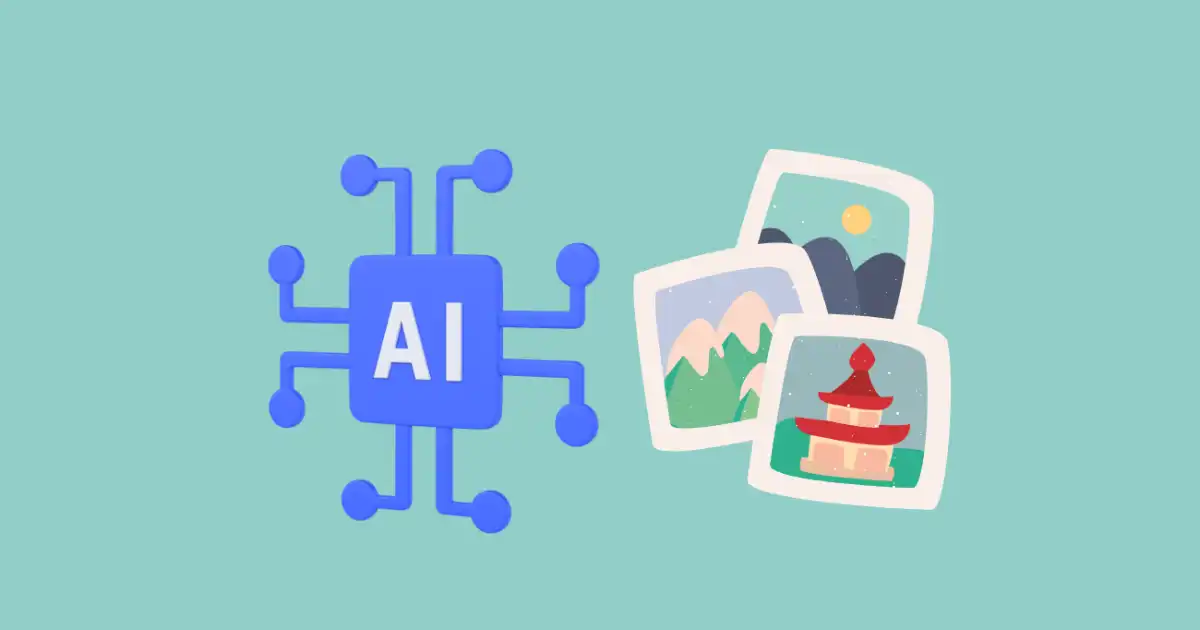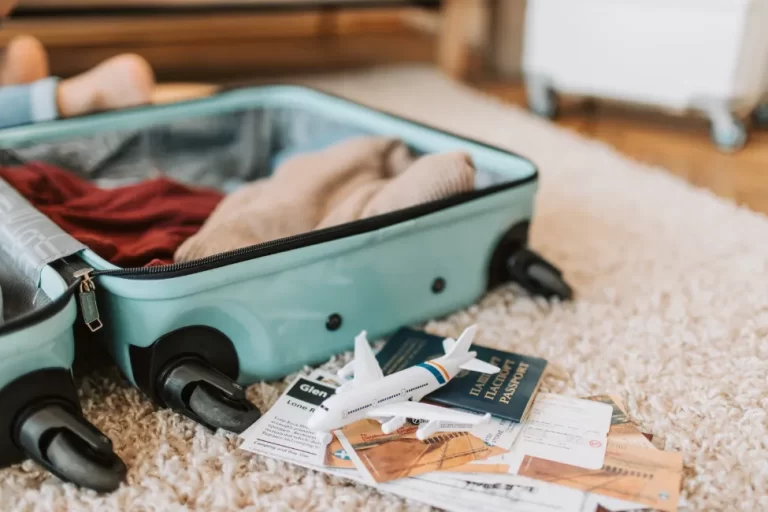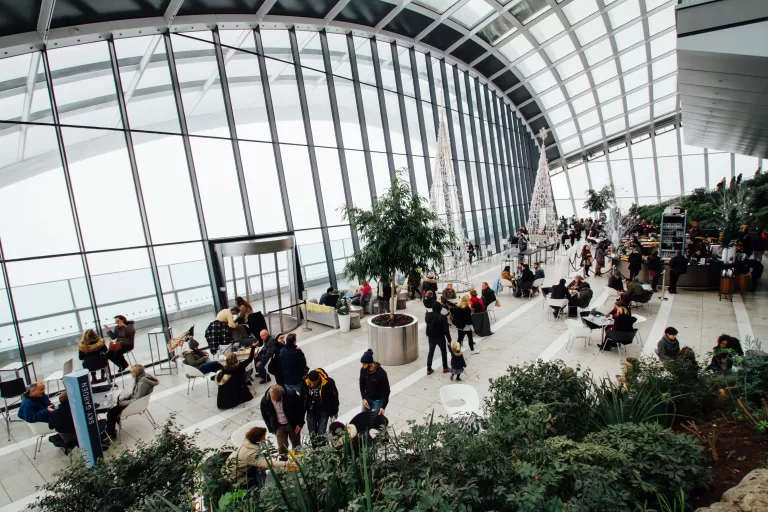Discover How AI Can Make Your Travel Easier and Stress-Free

Let’s face it, traveling can be stressful. Between navigating unfamiliar destinations, dealing with language barriers, and juggling bookings and schedules, it’s no wonder that many people find the planning process overwhelming.
But what if I told you that there’s a solution that can help make your travels easier and less stressful? That solution is artificial intelligence (AI).
Now, I know what you might be thinking. The idea of relying on a computer to plan your travels might seem daunting or impersonal. But the truth is, AI has come a long way, and it’s revolutionizing the way we travel.
As someone who loves to explore new places, I was hesitant about incorporating AI into my travel planning process at first. But once I gave it a try, I was amazed at how much easier it made everything.
AI can take care of everything from recommending personalized travel itineraries to providing instant translation services. By leveraging the power of AI, you can travel with greater ease and confidence, without worrying about the logistics.
So, if you’re feeling hesitant about using AI for travel, I get it. But trust me, the benefits are worth it. In this blog post, I’ll walk you through the ways in which AI can make your travels smoother and more enjoyable, and share my personal experiences of how it’s helped me to travel with ease and peace of mind.
What Is AI?
What is AI, and how does it relate to travel? AI stands for artificial intelligence, and in the context of travel, it refers to the use of machine learning algorithms to analyze data and provide personalized recommendations and solutions for travelers.
Artificial Intelligence, or AI for short, is the simulation of human intelligence in machines that are programmed to learn, reason, and perform tasks that typically require human cognition. At its core, AI is a broad field that encompasses various subfields such as machine learning, deep learning, natural language processing, and computer vision, among others.
In the context of travel, AI algorithms are used to analyze large amounts of data, identify patterns, and make predictions to help improve various aspects of the travel experience.
By leveraging the power of AI, travel companies and service providers can provide personalized recommendations, streamline operations, and enhance customer service, ultimately making travel more efficient, enjoyable, and stress-free.
Today, not only big companies have access to powerful AI tools. AI is becoming more and more widely accessible and individual travelers like you and me. In the following sections, we’ll explore some of the most exciting ways that travel AI is changing the face of travel.
What Are the Benefits of AI for Travelers?
Touring can be a stimulating and rewarding experience, yet it regularly accompanies its reasonable portion of difficulties. From planning your trip to navigating unfamiliar destinations, there’s no denying that travel can sometimes feel overwhelming. AI has drastically improved the travel experience, making it simpler and more enjoyable.
A Smoother Planning Process
One of the most significant benefits of using AI in travel is the ability to streamline the planning process. AI-powered tools can provide a wealth of information, recommendations, and resources that can help you plan your trip with greater efficiency and ease.
For example, travel websites and booking platforms now use AI algorithms to provide personalized recommendations based on your travel preferences, budget, and past behavior. These recommendations can include suggested destinations, activities, and accommodations that align with your interests and needs.
RoutePerfect, an online travel planning tool, uses artificial intelligence algorithms to create personalized itineraries based on your preferences. By inputting details such as budget, interests, and desired destinations, RoutePerfect generates a customized plan tailored specifically for you. This eliminates hours of research and helps ensure a seamless vacation experience.
Additionally, some airlines and hotels have implemented chatbots and virtual assistants that can assist you with everything from booking flights and hotels to answering common travel questions and providing real-time updates on your itinerary.
AI-powered itinerary planning tools can also help you optimize your travel schedule, taking into account factors like flight availability, traffic conditions, and weather patterns.
For example, Hopper, an app that uses machine learning algorithms to predict flight prices with 95% accuracy up to one year in advance. This allows travelers to find the best deals on flights without spending hours scouring through countless websites.
By automating routine tasks and providing personalized recommendations, AI can help you save time, reduce stress, and plan your perfect trip with ease.
There are also exciting new tools for planning specific kinds of trips – like a workation or themed trip. These trips may have some niche criteria that can be harder to plan for, especially if you’re traveling to a destination for the first time. AI can help by eliminating some of that research time and helping you streamline the planning process.
A few examples.
Workations Trips: Combining business and leisure travel is a growing trend among professionals. AI-powered tools like TripActions streamline the process of booking flights, accommodations, and activities that cater to both work and relaxation needs.
Experiential Travel: Immersive experiences are becoming more sought-after as travelers look for authentic connections with local cultures. Platforms such as Airbnb Experiences, which uses AI to match users with unique activities based on their interests, enable you to dive deeper into your destination’s history and traditions.
Effortless Language Translation
Navigating language barriers while traveling can be daunting; however, AI has made significant strides in breaking down these obstacles.
Real-time translation apps like Google Translate use advanced neural networks to provide accurate translations across numerous languages instantly. With such technology at our fingertips, communicating with locals becomes a breeze regardless of where you’re exploring.
Additionally, apps like TripLingo offer cultural tips alongside translation services to enhance communication during international travels.
Better Recommendations
Travel recommendations are an essential part of trip planning. They can help you make informed decisions about where to go, what to see, and what to do while traveling.
Thanks to AI, travel recommendations are more personalized and accurate than ever.
AI-powered travel tools analyze vast amounts of data, such as your past travel behavior, and your preferences to provide you with recommendations that align with your interests and needs.
Today’s AI-driven platforms like TripAdvisor analyze vast amounts of data from user reviews and preferences to offer personalized suggestions tailored specifically to your interests – ensuring you make the most of your trip.
You can also use online chatbots like ChatGPT to help you plan an itinerary or request recommendations based on your preferences and interests.
Streamlined Customer Service
AI is also transforming customer service in the travel industry, making it more efficient and personalized.
Many airlines, hotels, and booking platforms now utilize AI-powered chatbots to assist customers with their inquiries around the clock. For instance, KAYAK‘s virtual assistant can help users find flights or accommodations based on their preferences and budget without having to wait for a human representative – saving time and effort during the planning process.
AI-Enhanced Airport Navigation
Airports are increasingly adopting AI technology to improve passenger experiences and there are a few fun new airport hacks I’ve recently discovered.
For example, Gatwick Airport’s mobile app uses augmented reality (AR) and AI-powered indoor navigation to guide passengers through the airport with ease. Similarly, San Francisco International Airport (SFO) has introduced an AI-enhanced robot named FRED that assists travelers with directions and information about airport services.
Improving Eco-Friendly Travel Options
Sustainable tourism has gained traction over recent years due to increasing environmental concerns among travelers. AI-driven platforms like GreenTripper help you calculate your carbon footprint for different modes of transportation while suggesting eco-friendly alternatives for accommodation or activities during your journey.
With plant-based diets becoming increasingly popular worldwide, many travelers want access to vegan or vegetarian dining options, for example, when they’re away from home. Apps like HappyCow, powered by AI algorithms, provide customized recommendations based on location and dietary preferences.
In addition to these benefits, AI continues to evolve at an impressive pace; as such advancements progress further into various aspects of traveling – from transportation logistics to immersive experiences – we can expect even greater enhancements in how we explore our world.
The Gist:
AI is transforming the travel sector by facilitating faster, more effective organizing; providing real-time translation applications to overcome language obstacles; personalizing recommendations according to user preferences, and streamlining customer service with AI-driven chatbots. With advancements in AI technology continuing to progress, travelers can expect even greater enhancements in how they explore the world.
The Future of AI in Travel
As technology continues to advance, the future of AI in travel is becoming increasingly promising. With new innovations and developments constantly emerging, travelers can expect a more seamless and personalized experience when planning their trips. In this section, we will explore some exciting ways that AI is transforming the travel industry and what it means for you as a traveler.
A Personalized Booking Experience
One major area where AI is already making an impact on the travel industry is through personalization. By analyzing your preferences, search history, and booking patterns, AI-powered algorithms can offer tailored recommendations for flights, accommodations, activities, or even entire vacation packages based on your unique interests and needs.
My prediction is that these services will continue to improve and become more and more popular and accessible.
Voice-Activated Assistance
Voice assistants like Amazon’s Alexa or Google Assistant are already popular at home; however, they’re now making their way into hotel rooms too.
These voice-enabled devices allow guests to control room settings such as lighting or temperature simply by speaking commands aloud – no need to fumble around with unfamiliar switches or remotes.
Additionally, voice assistants can provide information about local attractions or answer questions related to hotel services without having to call reception.
Smoother Airport Experiences
- Facial Recognition: Many airports are starting to implement facial recognition technology powered by AI to streamline the check-in and boarding process. This biometric technology not only speeds up the airport experience but also enhances security measures.
- Smart Luggage: AI-enabled luggage is becoming more popular, offering features such as location tracking, self-locking mechanisms, and even weight sensors that can help you avoid overweight baggage fees. Check out this list of the best smart luggage options.
- Airport Robots: Some airports have introduced robots equipped with AI capabilities to assist travelers in various ways – from providing directions to carrying their bags. I’m excited to see how these advancements will continue to make the airport travel experience smoother and safer.
The future of AI in travel holds endless possibilities for enhancing your journey by making it smoother, more personalized, more efficient, and maybe more cost-effective, as well. As new technologies continue to emerge and evolve within this industry, there has never been a better time for travelers like yourself to embrace these innovations.
For Inspiration: Using AI to Enhance Your Wellness While Traveling
Outside the logistical experience, there are many other ways AI can be used to enhance your travel.
By leveraging the power of AI, you can also make improvements to your health and wellness while on the go. Here are some of my favorite ideas.
Personalized Fitness Recommendations
Finding time for exercise while traveling can be challenging, especially when you’re unsure of what workouts are best suited for your current environment or schedule. Fortunately, AI-driven fitness apps are here to save the day. These innovative applications analyze factors such as your location, available equipment, personal preferences, and fitness goals to create customized workout plans tailored just for you.
One of my favorite “smart” fitness apps is Pear, which is basically like a personal trainer built into the software. It gives you personalized recommendations based on the data you entered and can also sink with your smartwatch to track your progress.
Stress Management with AI Meditation Apps
Maintaining mental well-being is equally important as physical health when it comes to enjoying a fulfilling travel experience. With an abundance of stressors that may arise during trips – from flight delays to language barriers – travelers need effective ways to manage their anxiety levels. Enter Headspace, a meditation app designed specifically for stress reduction and relaxation techniques wherever you may be.
I love that this app has meditations of different lengths and for different situations (having trouble falling asleep, feeling angry, feeling anxious, etc.) so you can get targeted help for what you’re experiencing.
Smart Sleep Solutions
A key part of enjoying a vacation, at least for me, is being adequately rested. Here, AI also has some fun solutions to offer.
Sleep Tracking: A good night’s sleep is essential for staying energized throughout your journey; however, adjusting to new time zones or unfamiliar sleeping environments might disrupt our usual sleep patterns. Thanks to wearable devices like Fitbit or OuraRing, you can monitor your sleep quality and receive personalized insights on how to improve it.
AI Sleep Aids: Struggling with insomnia or restless nights? AI-powered sleep aids like the Sleep.AI app uses machine learning algorithms to analyze your sleeping habits, provide tailored recommendations for better rest, and even offer soothing sounds to help lull you into a peaceful slumber.
In sum, incorporating AI-driven wellness solutions into your travel routine not only helps keep you feeling great physically but also enhances your overall enjoyment of new experiences. So why not give it a shot on your next trip?
Case Study: How I Used ChatGPT to Plan My Trip to Switzerland
I love experimenting with new technologies so when planning a recent trip to Switzerland, I decided to try using ChatGPT’s chat function to help with some ideas and my travel itinerary.
Honestly, I was amazed at how easy and personalized the recommendations were. I also really like having the chat function and a “conversational” style of communication. If there was something in the itinerary I didn’t like or wanted more of, I would simply type in my request as if I was talking to a personal assistant.
Here’s a basic outline of what I did:
Identify your destination: Start by determining where you want to go. Whether it’s a specific city, country, or region. Although if you want some ideas, you can also come to ChatGPT with a clean slate and ask for recommendations. But I find having a general idea results in better recommendations.
Initiate the chat: Open the ChatGPT interface and initiate the chat function. Start by introducing yourself and providing some basic information about your trip, such as the dates of travel, number of travelers, and budget.
Ask specific questions: Ask ChatGPT specific questions about your destination, such as the best places to stay, must-visit attractions, and recommended restaurants. You can also ask for personalized recommendations based on your preferences. The more specific you are, the better the answers will be.
Keep the conversation going: ChatGPT is designed to have a natural conversation, so don’t be afraid to ask follow-up questions or provide additional information as needed. The more information you provide, the more personalized the recommendations will be.
Take notes: ChatGPT will provide you with a lot of information, so it’s a good idea to take notes during the conversation. This will help you remember important details and make it easier to plan your trip.
Plan your itinerary: Once you have all the information you need, it’s time to plan your itinerary. Use the recommendations provided by ChatGPT to create a detailed plan for your trip, including accommodations, attractions to visit, and places to eat. And again, you can have ChatGPT do this for you.
Disclaimer: While ChatGPT can provide helpful information and recommendations for travel, it’s important to note that the accuracy of the information provided cannot be guaranteed. As with any source of information, it’s important to fact-check and verify the information before making any decisions. Additionally, ChatGPT’s responses are generated based on patterns in the data it has been trained on and may not always be appropriate for your specific situation. It’s always a good idea to do your own research and consult with other trusted sources before making any important travel decisions. I usually do a quick Google search to confirm the recommendations ChatGPT gives me.
Sample ChatGPT Prompts for Travel
If you need some additional inspiration, here are some examples of questions you could ask ChatGPT about travel:
- What are the best places to visit in [destination]?
- What’s the best time of year to travel to [destination]?
- How do I find affordable accommodation in [destination]?
- What are some must-try foods in [destination]?
- How do I get around [destination] using public transportation?
- Are there any unique cultural experiences I shouldn’t miss in [destination]?
- What are some popular activities or attractions in [destination]?
- What’s the weather forecast for [destination] during my planned travel dates?
- Give me an itinerary for a 3-day trip to [destination] that includes hiking.
- What are popular cultural websites about [destination]?
FAQs: How AI Can Make Your Travel Easier
How can AI help with travel?
AI can assist travelers in various ways, such as personalized recommendations, language translation, and smart navigation. It can also streamline booking processes through chatbots and virtual assistants while providing real-time updates on flight delays or cancellations. Additionally, AI-powered tools like facial recognition can enhance security at airports. AI is developing rapidly and we’re sure to see even more innovations in the near future.
How AI makes our life easier?
AI simplifies daily tasks by automating repetitive work, offering tailored suggestions based on user preferences, and enhancing communication through natural language processing. It improves decision-making with data-driven insights and predictive analytics. In healthcare, it aids diagnosis and treatment planning; in finance, it optimizes investment strategies.
How does AI impact tourism?
AI transforms the tourism industry by personalizing customer experiences through targeted marketing campaigns and tailored offerings. It enables efficient resource management for hotels using occupancy predictions while improving customer service via chatbots. Furthermore,it enhances destination discovery, helping tourists explore new locations based on their interests.
How has technology made travel easier?
Technology revolutionized travel by enabling online bookings for flights and accommodations; GPS systems provide accurate directions to destinations; mobile apps offer instant access to information about attractions or local transportation options; social media platforms facilitate sharing of experiences among fellow travelers.
What are the advantages of artificial intelligence in tourism?
- Personalized recommendations and experiences
- Efficient resource management for hotels and airlines
- Improved customer service through chatbots and virtual assistants
- Enhanced security with facial recognition technology at airports
- Data-driven decision-making in marketing campaigns and pricing strategies.-li>
Conclusion
AI can make your travel journey more convenient, quicker, and pleasurable. Whether it’s through automated check-in systems or smart navigation tools, AI is revolutionizing the way we explore the world. With its ability to enhance wellness while traveling and help us navigate new trends in travel with ease, AI is sure to be an invaluable asset for travelers of all kinds in the years to come.





